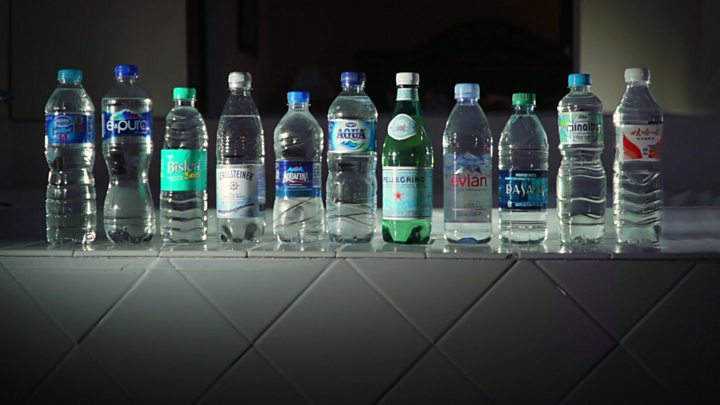Some premium tea bags might be leaving billions of microscopic plastic particles in your cup, new research suggests.
Canadian researchers found that some plastic tea bags shed high levels of microplastics into water.
Microplastics have widely been found in the environment, in tap and bottled waters, and in some foods.
The World Health Organization (WHO) says such particles in drinking water do not appear to pose a risk.
But the WHO said the findings were based on "limited information" and it called for greater research on the issue.
The researchers, from McGill University in Montreal, Canada, also called for more investigation into the health effects of microplastics, defined as small (less than 5mm in length) pieces of any kind of plastic debris.
For the study, they bought four different commercial teas packaged in plastic tea bags.
Most tea bags are made from paper, with a small amount of plastic used to seal them shut. But some premium brands have switched to using greater amounts of plastic mesh for their product instead.
This is usually so that the tea bag is held in a pyramid shape, which producers claim helps the tea leaves infuse better.
The researchers removed the tea and placed the empty teabags in water heated to 95C (203F) as if they were brewing tea.
They found that a single plastic teabag released about 11.6bn microplastic and 3.1bn smaller nanoplastic particles into the hot water. The particles are completely invisible to the naked eye.

The plastic particles lurking in your bottled water
The level of "particles released from the teabag packaging are several orders of magnitude higher than plastic loads previously reported in other foods", according to the study, which was published by the journal of Environmental Science and Technology.
Researcher Laura Hernandez says they were surprised by the amount released compared to those recorded in other studies into things like bottled water.
She says the discrepancy could be in part due to the fact they focused on the tiniest of particles - both microplastics, which are about the thickness of one hair, and nanoplastics, which are a thousand times smaller.
But she also said it could be due to the fact "it's a piece of plastic being exposed to boiling water" and not just water at room temperature.
Ms Hernandez and her team did not disclose the particular tea brands used in their study.
"The consumer should avoid plastic packaging, not a specific brand, and definitely not the tea that comes inside," she said in an email. "We encourage consumers to choose loose teas that is sold without packaging or other teas that come in paper teabags."
She noted this is a chance for consumers, like those looking to reduce their plastic use, to be more aware of their purchases.
"There is really no need to package tea in plastic, which at the end of the day becomes single-use plastic," she said. "[And] which is contributing to you not just ingesting plastic but to the environmental burden of plastic."
Latest Stories
-
Let’s rewrite the history of Ghana’s youth together – Opare Addo on ministerial nomination
5 minutes -
Cocoa smuggling: Cocobod intercepts 1,473 maxi bags, calls for stiffer punishment
8 minutes -
Two in police grip for suspected ritual murder in Akatsi North District
12 minutes -
Who heads the National Insurance Commission (NIC)?
26 minutes -
Outlook of Sub-Saharan African countries to be neutral in 2025 – Fitch
37 minutes -
GH₵490m unaccounted for by ECG in three months – Audit report
38 minutes -
ICS students use theatre to amplify call against illegal mining in Ghana
42 minutes -
From despair to triumph: EDUCARE Trust Fund beneficiary becomes medical doctor
47 minutes -
Chief Moomen to unveil Mansa Musa Epic Theater
1 hour -
Academic City is chartered: Redefining tertiary education in Africa takes full force
1 hour -
Financing challenges to remain in Ghana, Zambia – Fitch
1 hour -
GUSA president calls for government aid amid funding crisis
2 hours -
Cote d’Ivoire gets state of the art Technical Centre thanks to FIFA Forward
2 hours -
Kwasi Kwarteng: Exposing the inconsistencies in NDC’s promise on no academic fees for first-year students
3 hours -
NDC begins interview for MMDCE aspirants in Ashanti Region
3 hours

